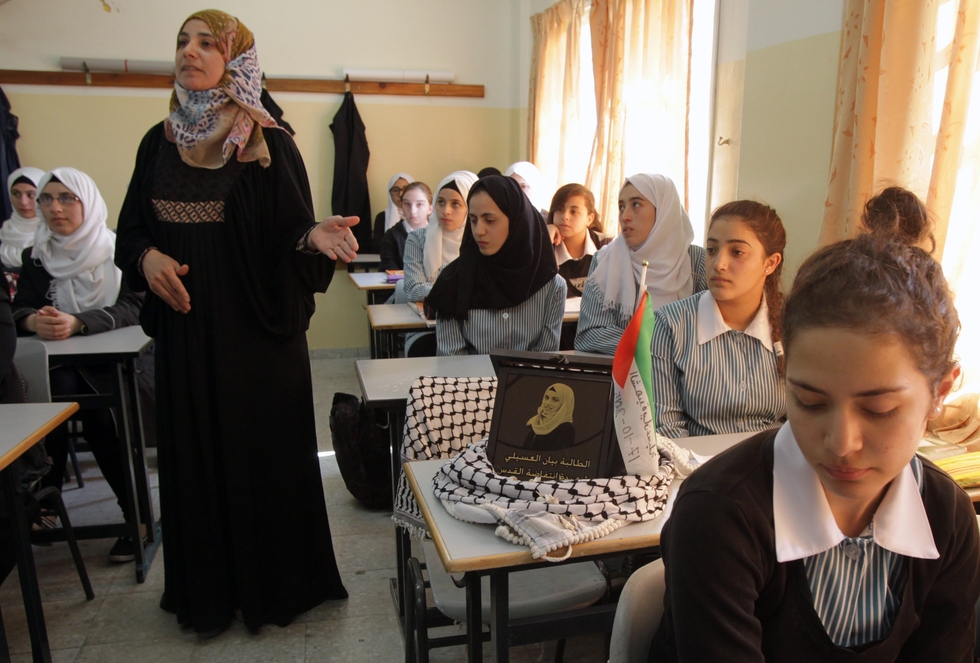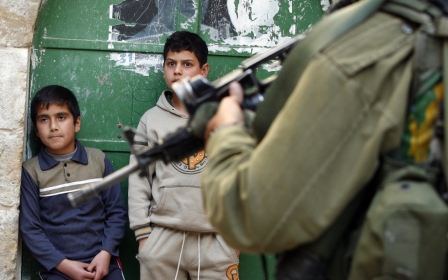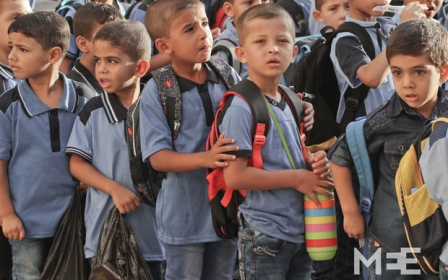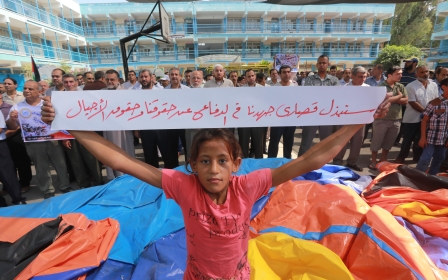World Bank grants for Palestinian education are another kind of occupation

Since the beginning of the Jerusalem Intifada, as it has been referred to by Hamas, Israel has intensified its state and settler violence, targeting a considerable number of Palestinians who are still at school.
It is a fact that the current uprising is mostly comprised of the post-Oslo generation, which signifies an incisive departure from the complacency characterising the political process. Indeed, even resistance factions have been left to grapple with the realisation that their role was marginalised in the current uprising. However, the double attack on Palestinian society by Israel should not be missed.
Apart from the recent legislation that has strengthened Israel’s impunity through approval of extrajudicial killings of Palestinians under the pretext of security concerns following resistance at Al-Aqsa, the current atrocities are also a direct attack upon the foundations of Palestinian history, culture and resistance - an attack upon education.
While Israel continues to murder and injure Palestinian students, the World Bank has announced that two grants will be given to “Palestinian local governments” with the aim of improving “basic services and quality of education”.
The grants, which total $8 million, will be split between the Palestinian Partnership for Infrastructure Development Multi-donor Trust Fund and the Teacher Education Improvement Project. According to Steen Lau Jorgensen’s discussion of the first grant of $5 million, which is supposed to strengthen and improve local services in Palestinian villages: “The financing instrument that will be used is a recognition of the readiness of Palestinian institutions for full statehood.”
In regards to the education-related grant of $3 million, Jorgensen spoke of the importance of improving competence and skills for primary school teachers in the West Bank and Gaza, adding that “Recognising that need and translating it into active strategy is investing in the future of Palestinian children and their resilience to challenges - such investment pays off for years to come.”
The proposal pertaining to the education sector, which stipulates the grant to the Palestine Liberation Organisation for the benefit of the Palestinian Authority, recognises the Palestinian economy’s recession in 2014, exacerbated by Operation Protective Edge in the summer of the same year.
Last May, the International Monetary Fund (IMF) predicted repercussions due to Israel’s colonial aggression on Gaza, in particular the delays in reconstruction, as well as the siege on the enclave, in which Egypt is now participating wholeheartedly.
Back to Operation Protective Edge, Israel’s deliberate targeting of schools and educational institutions should also be considered. A UNESCO report issued last January details the destruction of educational institutions in Gaza, as well as the possibility of certain higher education sectors having suffered more destruction than others. A higher percentage of students specialising in business and education were targeted, betraying the intention to destabilise any potential for Palestinians in Gaza.
Historically, the intertwining of Palestinian anti-colonial struggle and education can be compared to both Fidel Castro and Antonio Gramsci, who utilised their incarceration to further intellectual thought and provide foundations for resistance. Castro’s subsequent manifestos, as well as the Declarations of Havana, embodied the continuation and implementation of education as an integral component of anti-colonial struggle, to the benefit of Cuban society. Education in Cuba was not compromised by the revolutionary government - on the contrary Fidel emphasised the inherent role which education played both within the social sphere as well as ideology.
In Palestine, the dynamic is constantly disfigured due to the dependence manufactured by the Palestinian Authority and, in turn, imposed upon the population. The discrepancies between international aid for Israel and Palestine ensure a permanent subjugation - willingly embraced by the PA and resisted by the population.
While education remains an integral component of Palestinian history and memory, the lack of autonomy has also impacted Palestinian students due to political oppression. The PA’s insistence upon security coordination has resulted in a lack of protection for Palestinian students, while the constant reliance upon negotiations, draft resolutions and incessant references to the two-state hypothesis has diluted the impact which education could impart.
It is therefore pertinent to dissociate the forthcoming World Bank grants and the issues that plague Palestine. Any form of incorporation through international financial institutions constitutes nothing other than an additional manacle for the development of Palestinian society.
Claiming that investment in Palestinian education will serve to promote resilience is erroneous, given that isolation, as well as indoctrination, remain a key component of Israeli and international strategy. The funds, if administered, will serve to prop up the PA’s agenda, which still retains the two-state compromise as a purported solution, despite growing evidence of the paradigm serving none other than Israeli plans for further colonial expansion.
The World Bank’s willingness to finance infrastructure and education has no bearing on Palestinian aspirations. Rather, it serves to highlight what Israel stands to gain within the context of the suppression of Palestinian education by the PA, which not only acquiesces to external impositions, but also constantly attempts to assert and derive its purported international legitimacy based upon its willingness to collaborate with entities seeking Palestine’s fragmentation.
As things stand, the PA has manifested its inability to foster an appreciation for education within the ideology of resistance, and it is unlikely that international financial institutions would provide grants for educational purposes in Palestine that would contradict the aims of such institutions, namely to impose domination under the pretext of equality and opportunities.
- Ramona Wadi is an independent researcher, freelance journalist, book reviewer and blogger specialising in the struggle for memory in Chile and Palestine.
The views expressed in this article belong to the author and do not necessarily reflect the editorial policy of Middle East Eye.
Photo: Palestinian students sit in a classroom in the Israeli occupied West Bank town of Hebron on October 19, 2015 next to an empty chair of their former classmate 16-year-old Bayan al-Osaily (portrait) covered in a traditional Palestinian keffiyeh scarf, who was killed by a female Israeli soldier after she tried to stab her, according to Israeli security forces. (AFP)
New MEE newsletter: Jerusalem Dispatch
Sign up to get the latest insights and analysis on Israel-Palestine, alongside Turkey Unpacked and other MEE newsletters
Middle East Eye delivers independent and unrivalled coverage and analysis of the Middle East, North Africa and beyond. To learn more about republishing this content and the associated fees, please fill out this form. More about MEE can be found here.





